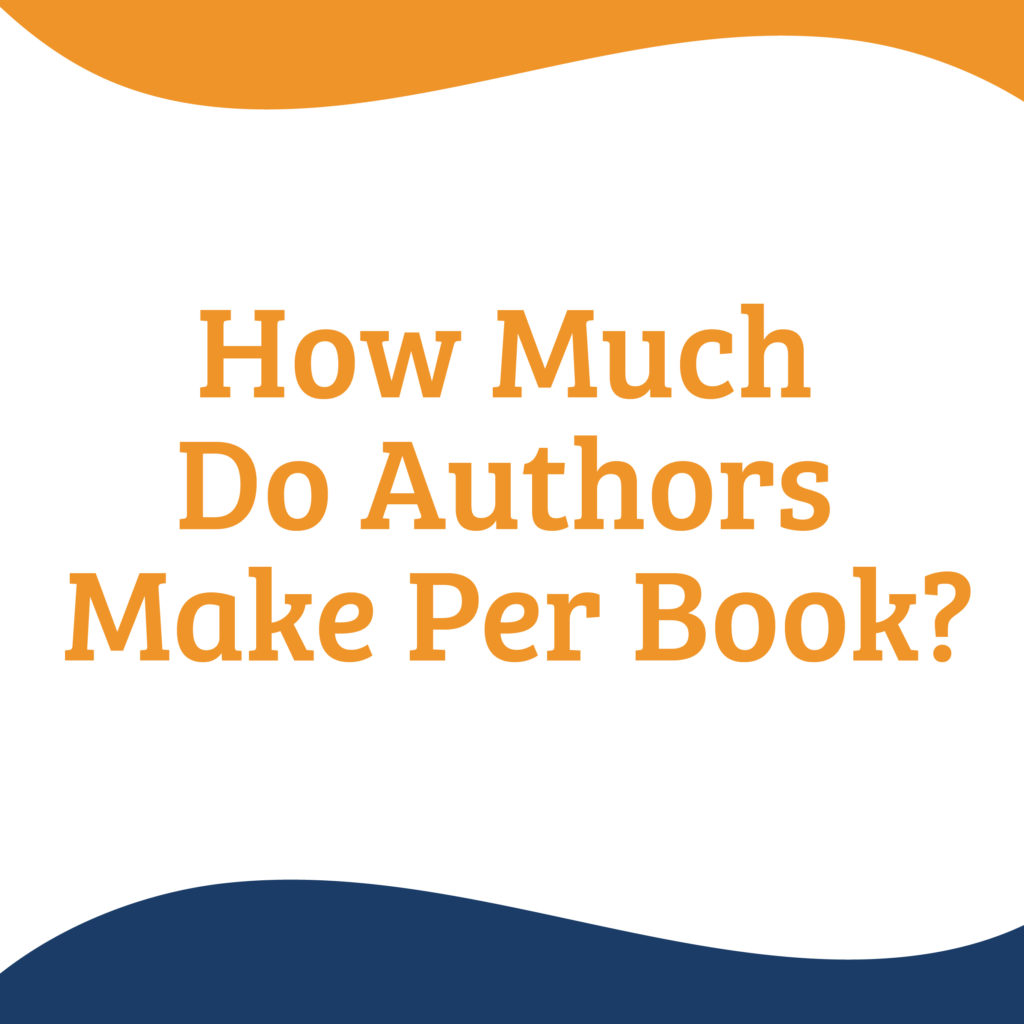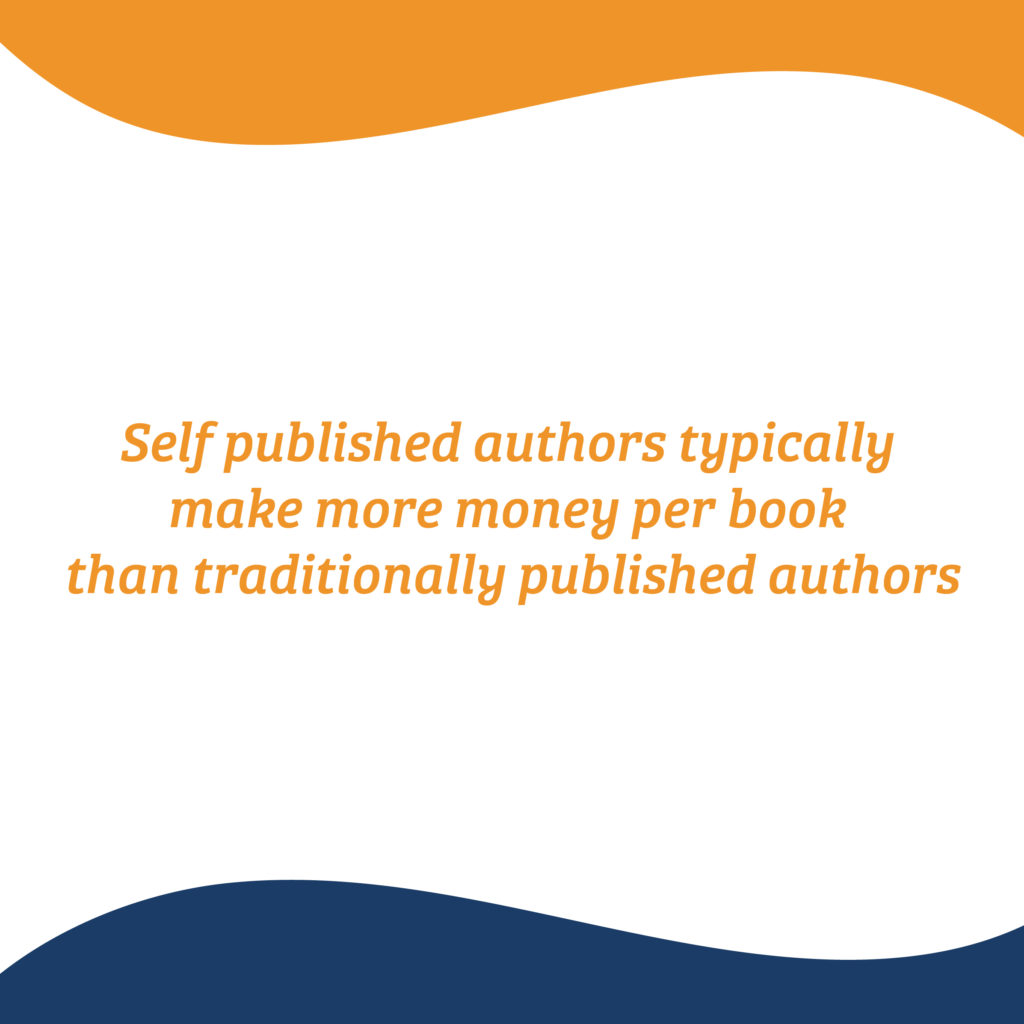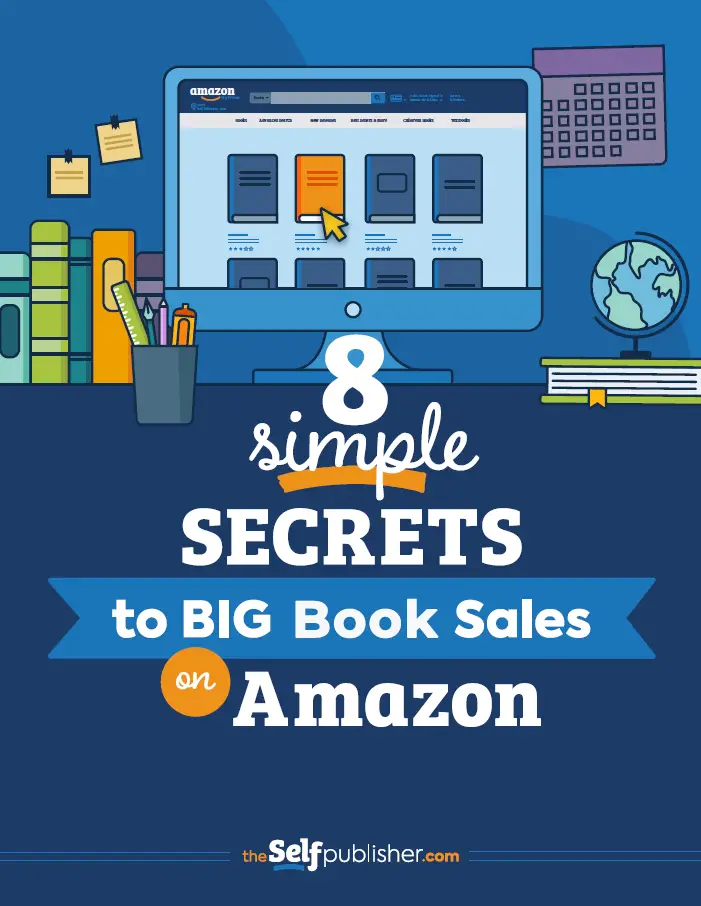Would you love to write for a living? Maybe you’ve daydreamed about champagne-fueled book launches, hitting the New York Times bestseller list … or simply being able to make a living doing what you love all day.
You might worry it’s not realistic. You may think only a tiny number of authors really make good money from their writing: big names like J.K. Rowling, Dan Brown, and E.L. James.
Maybe you think there’s no way your dream could be anything but that: a dream. But while it’s likely to require a lot of hard work, it is possible to make a living writing books.
In this article, we’re going to take a look at the truth, digging into what authors (both traditionally published and self-published) actually make.
We’ll also cover powerful strategies successful self-published authors use in order to make a living from their work.
How Do Authors Make Money?
Under a traditional publishing model, authors make money through royalties paid by the publisher. Royalties are a percentage of the book’s sale price: typically 8% – 15% (though ebook royalties are normally 25% or more).
Royalties are paid to the author in two ways:
- An advance, which may be anything from a few thousand dollars to hundreds of thousands of dollars—depending on how well the book is expected to sell.
- Ongoing royalties—once the advance is earned. (Though only 25% of books earn back their advance.)
If the author’s book was sold through an agent, the agent receives around 10% of the author’s royalties.
With self-publishing, authors are paid in a number of different ways, depending on how they chose to publish. For instance:
- Authors who print hundreds of copies of their books have an upfront cost, but then recoup this as the books sell.
- Authors who use print-on-demand don’t have any upfront costs and make a percentage (the difference between the book’s cover price and production costs) when each book sells.
- E-book published authors receive royalties: typically 70%, though this varies across different platforms and pricing points.
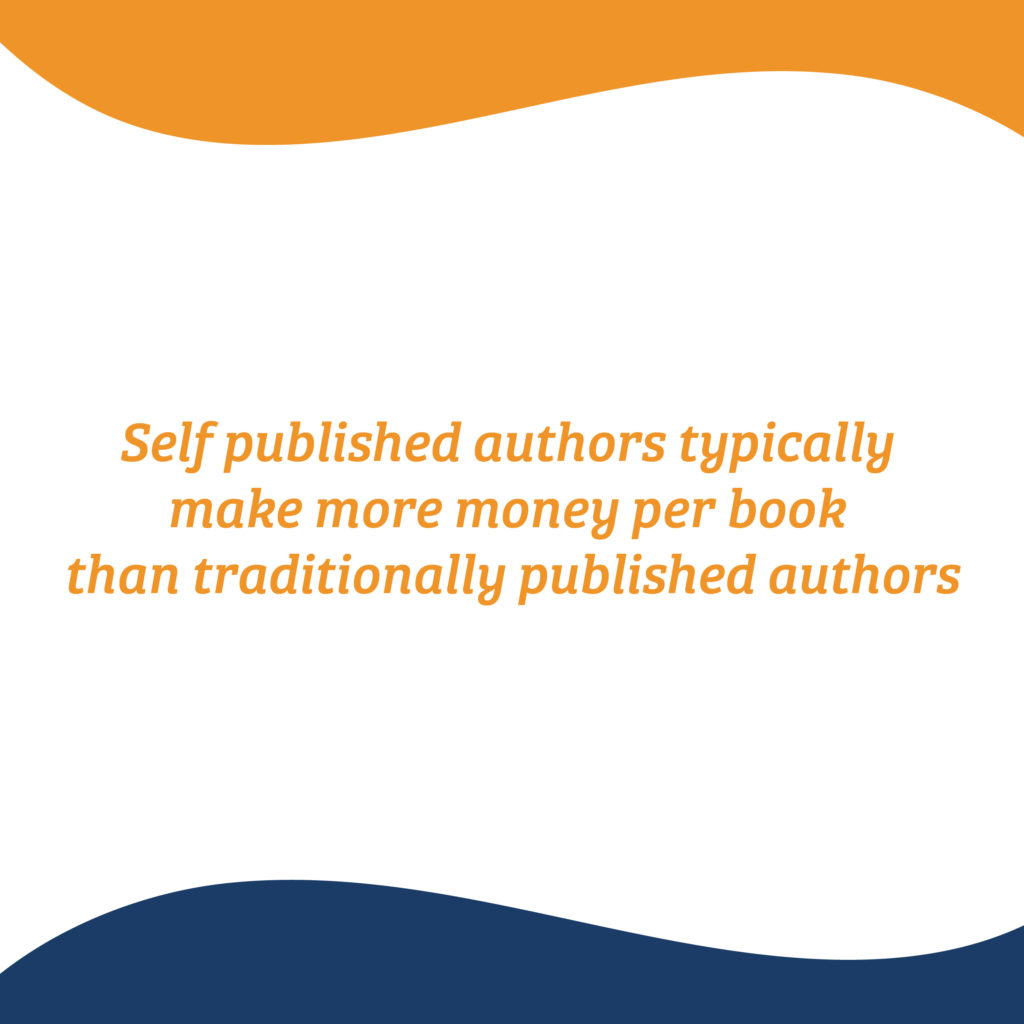
In almost all cases, self-published authors make more money per book than traditionally published authors. They’re cutting out the publisher (and agent) and working directly with retailers like Amazon.
So how much do authors make per book?
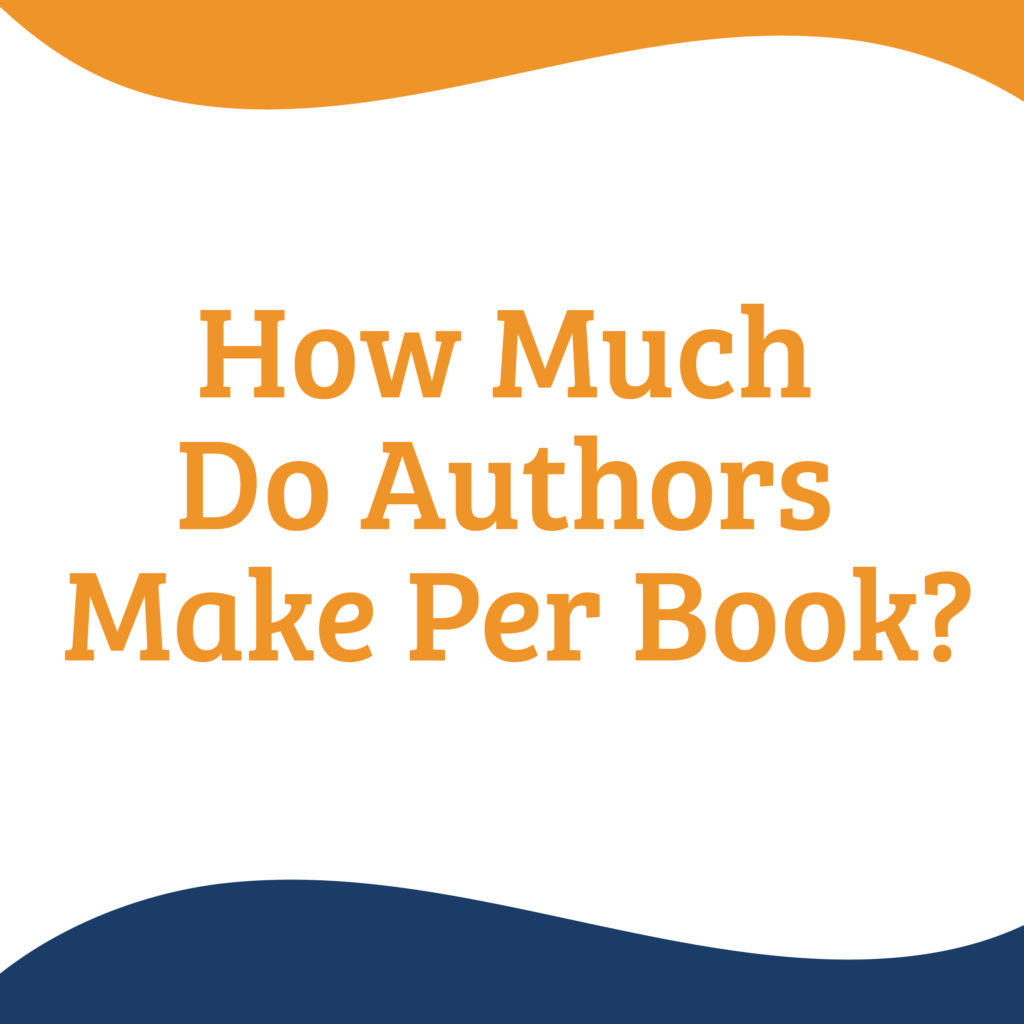
For an ebook priced at $4.99, here’s how the author’s royalty share would look under two different models:
- Amazon: 70% royalty, minus a delivery charge of around $0.15 (this varies depending on the ebook’s size). The author receives around $3.34 per book sold.
- Traditional publisher: 25% royalty. The author receives around $1.25 per book sold.
This means that, for an author to make more on a traditionally published book than a self-published book, the publisher would need to sell more than twice as many copies as the author could sell on their own.
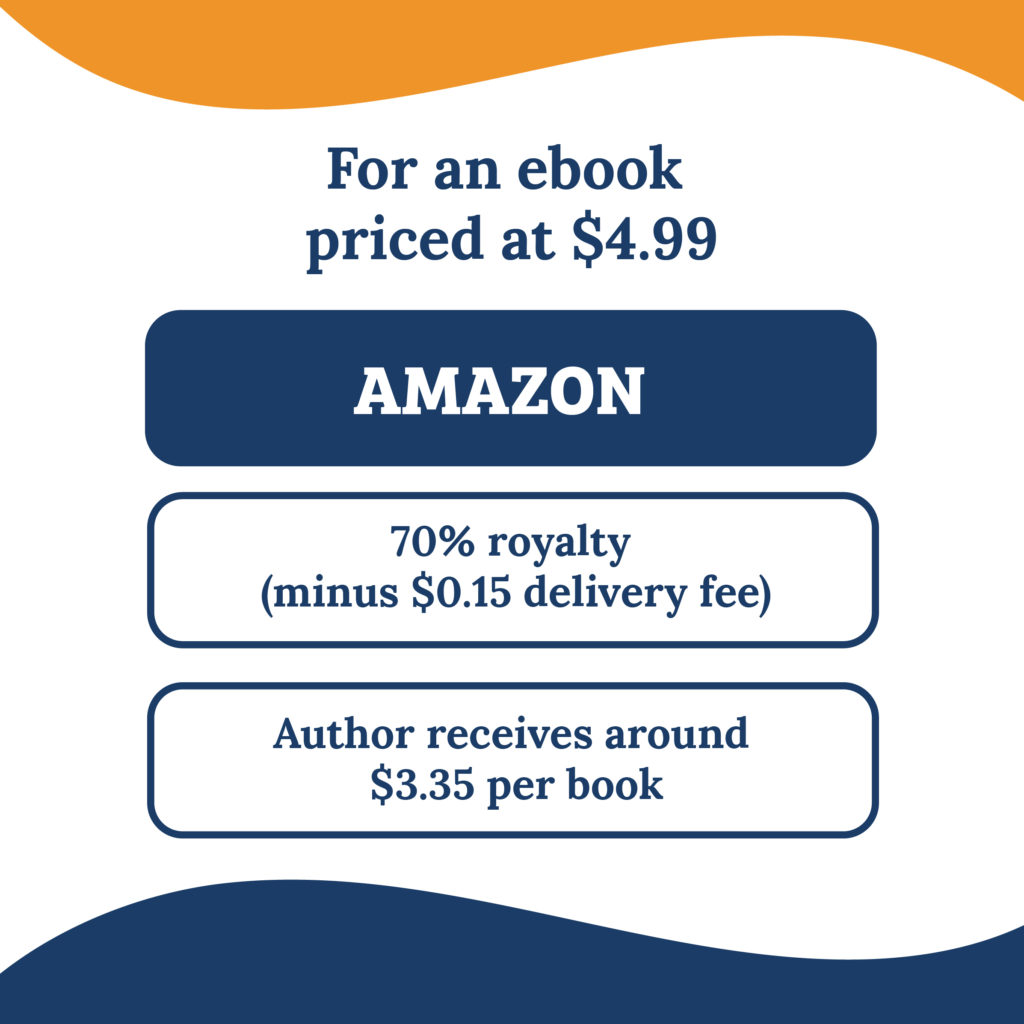
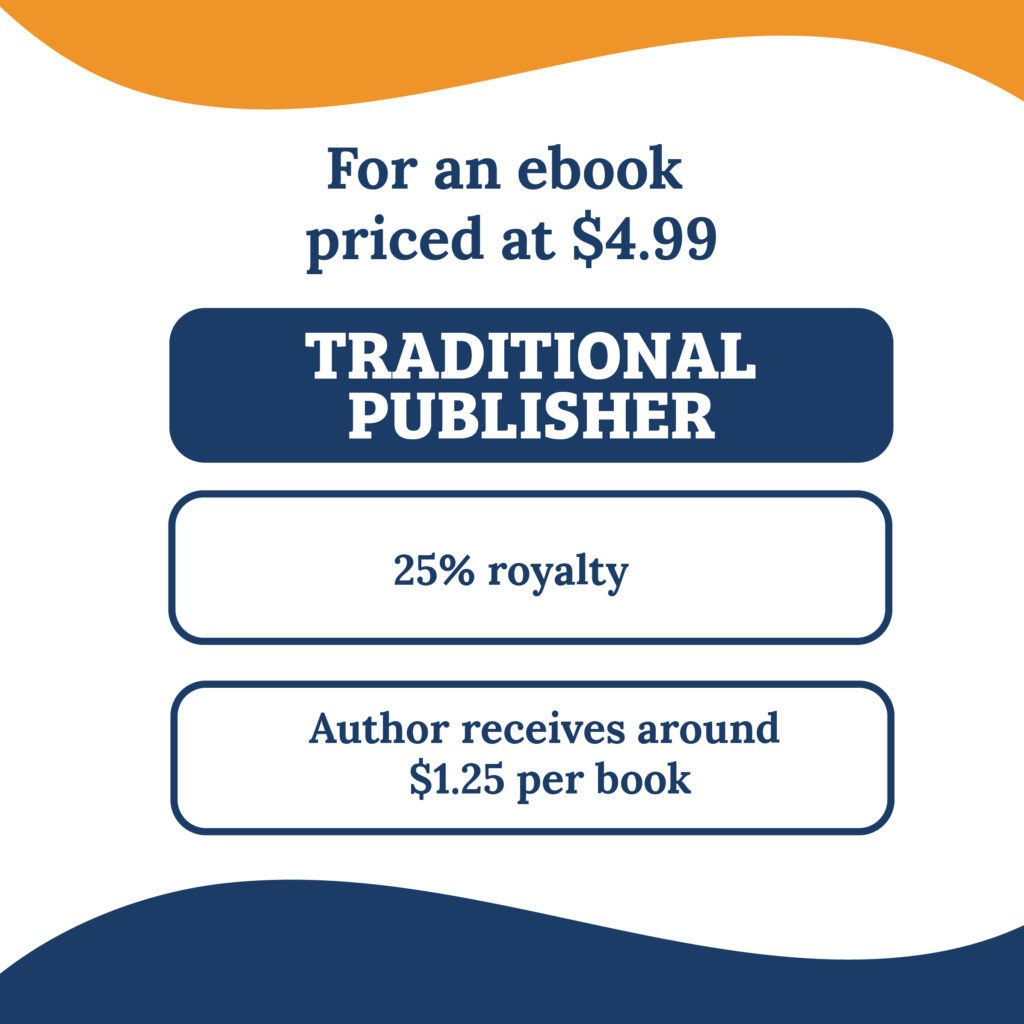
How Much Do Authors Make?
It’s hard to determine exactly how much authors make, as this depends on how “author” is defined.
For instance, some statistics only include full-time authors, some include all authors, even if they only published one book years ago. Others group novelists, poets, and freelance writers together.
These figures should give you some idea of what authors make, but keep in mind, there’s no comprehensive record of every authors’ income.
Fiction Authors
Novelists’ earnings vary tremendously.
The majority of novelists don’t earn a large income.
One survey found that 77% of self-published authors and 54% of traditionally published authors make less than $1,000/year from their novels. Of course, many of these authors write only part-time, and also have a day job.
Obviously, there are also some stand-out success stories. J.K. Rowling earns more than $300 million per year as a novelist. The late Tom Clancy is second on the list, earning $50 million per year.
Non-Fiction Authors
Like novelists, some non-fiction authors earn very little, while others earn a lot.
Most don’t only write non-fiction books. They might have a speaking or consulting business and use books essentially as a marketing tool rather than their main money maker.
Alternatively, they might write an occasional non-fiction book but earn the majority of their income from freelance work.
For instance, author Danny Iny explains that his book Engagement From Scratch has brought in royalties of $10,000 from Amazon. Not bad at all … but he also gives the book away for free on his website in exchange for email addresses.
This tactic has brought him revenue of over $250,000 through his consulting services and training programs, far outweighing income from the book itself.
In May 2020, the median annual wage for writers and authors was $67,120. This figure might sound surprisingly high. It’s important to note it doesn’t just cover book authors: freelance writers, ghostwriters, copywriters, and more are included.
The median author salary from just books would likely be significantly lower.
Best-Selling Authors
Best-selling authors can earn staggering sums of money … and you may have seen impressive book deals mentioned in newspapers or on TV. Remember, these are newsworthy because they’re rare.
Best-selling authors’ earnings can run into the millions, though most authors would be happy with a six-figure income.
A number of self-published authors (such as Joanna Penn, who hit six figures for the first time in 2015) are making upwards of $100,000 each year.
How much money do authors make at the top end of the scale? James Patterson is reported to earn $90 million per year, and Dan Brown, Nora Roberts, Danielle Steel, and Janet Evanovich are all in the $20 to $30 million per year bracket.
Best-Selling Genres
Obviously, some genres are more popular than others. Top selling genres include:
- Romance and Erotica—a $1.5 billion industry, with many off-shoots (paranormal romance, historical romance, and more).
- Mystery and Crime—a $730 million industry—many recent fiction bestsellers have been crime novels.
- Fantasy and Science-Fiction (particularly YA, and particularly in ebook form)—a $590 million industry.
- Thriller and Horror—an $80 million industry, dominated by Stephen King and Dean Koontz.
Writing in one of these genres definitely makes it easier to make a living as an author.
How to Make Money as an Author
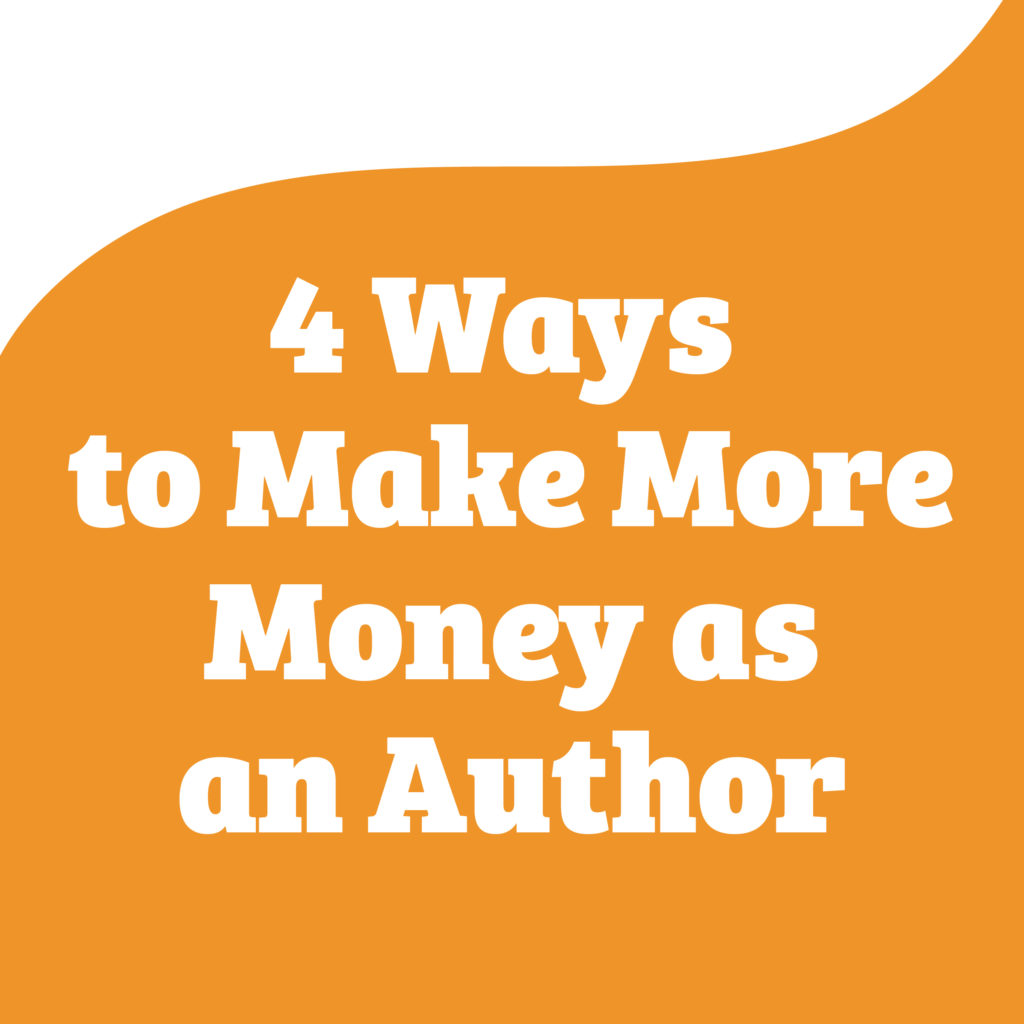
If you want to make a living as a self-published author, you can’t simply publish an ebook, sit back, and wait for the money to come pouring in. With 48.5 million books on Amazon in 2020, yours isn’t going to get much attention on its own.
Instead, you need to be proactive about writing and promoting books to grow your author salary.
Publish More Books
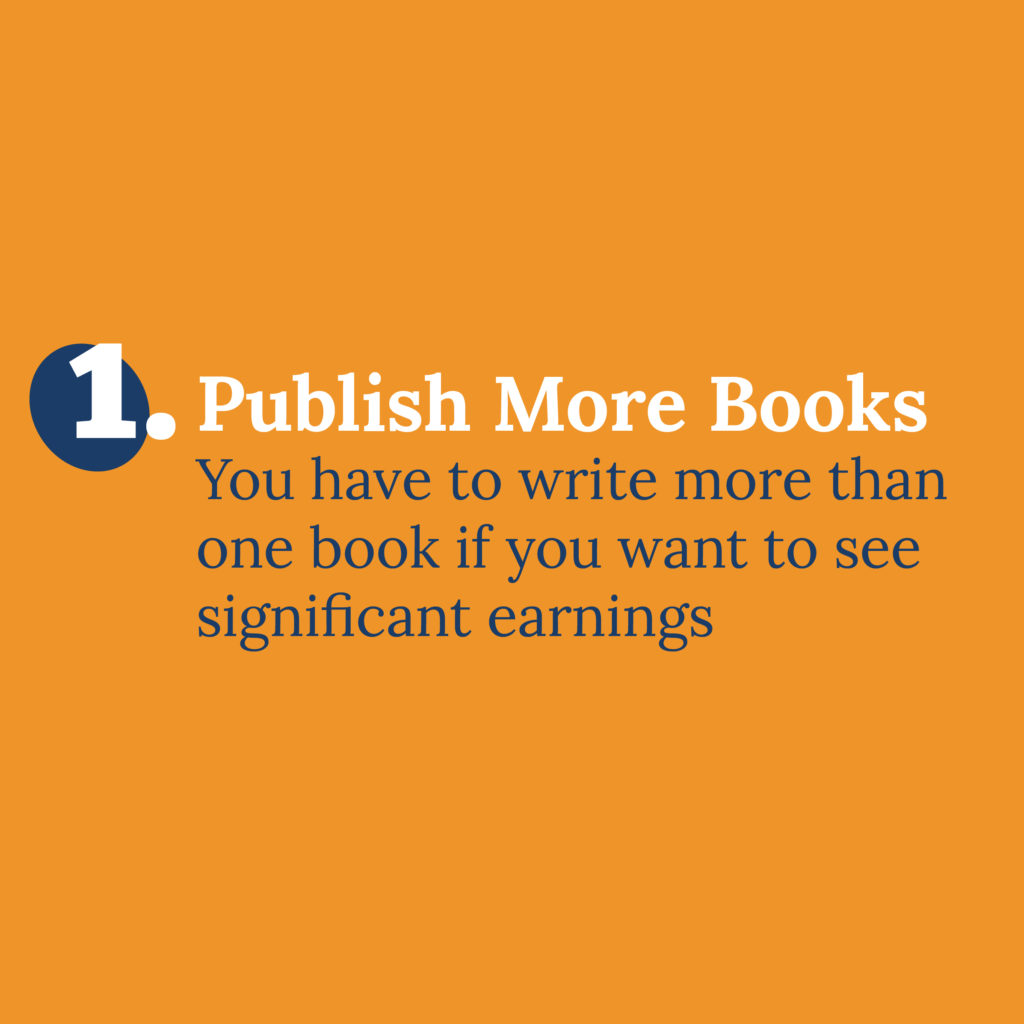
If you’ve written only one book, you’ll need to publish more before you begin to see significant earnings.
Most self-published authors find their sales take off once they hit five (or more) published books, particularly if those books are part of a series.
Even though not all your readers will buy multiple books, at least some of them will read your whole series—meaning much more money for you.
It may have taken you years to finish and publish your first book, and the prospect of doing it again sounds daunting. But most authors find they get significantly faster at producing books over time.
Plus, if you’re writing several books in the same series, you don’t need to come up with your characters and setting all over again.
Tip: Create a publishing timeline so you know what needs to be done each time between finishing the manuscript and actually launching your book.
Market Your Books
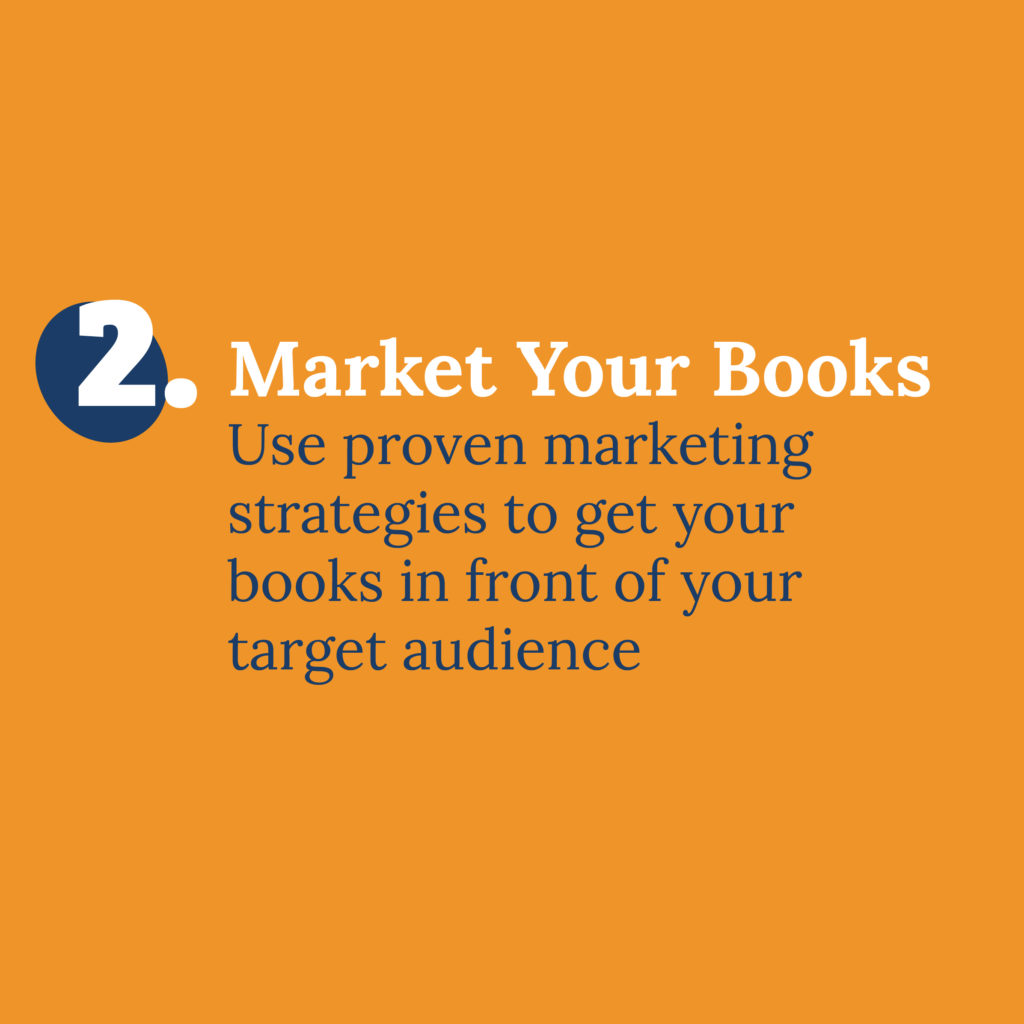
Once your books are published, market them. That means getting them in front of readers who’d likely enjoy them.
There are dozens of different ways you can market your books. Most authors use some or all of these techniques:
- Use keywords effectively on Amazon so that readers can easily find your book in a relevant search.
- Create a mailing list and encourage potential readers to sign up (maybe to get a free story or novella). Then notify them every time you have a new release.
- Give away the first book in your series for free: hopefully, you’ll hook some readers and they’ll go on to buy the rest of the series.
- Join forces with other authors to market your books to one another’s audiences.
- Run ads on sites like Facebook or Google to get your book in front of readers who enjoy your genre or who fit your ideal reader profile.
- Run ads on Amazon to target readers of similar books.
- Be active on social media, which will give you the opportunity to grow your audience.
Whatever technique(s) you use, you should track how successful your marketing efforts are.
This is especially crucial if you’re spending money. If you’re making $100/month from book sales but you’re spending $150/month on ads, that’s a net loss of $50/month.
Tip: For more ideas, check out this list of proven book marketing strategies.
Target Best Selling Genres
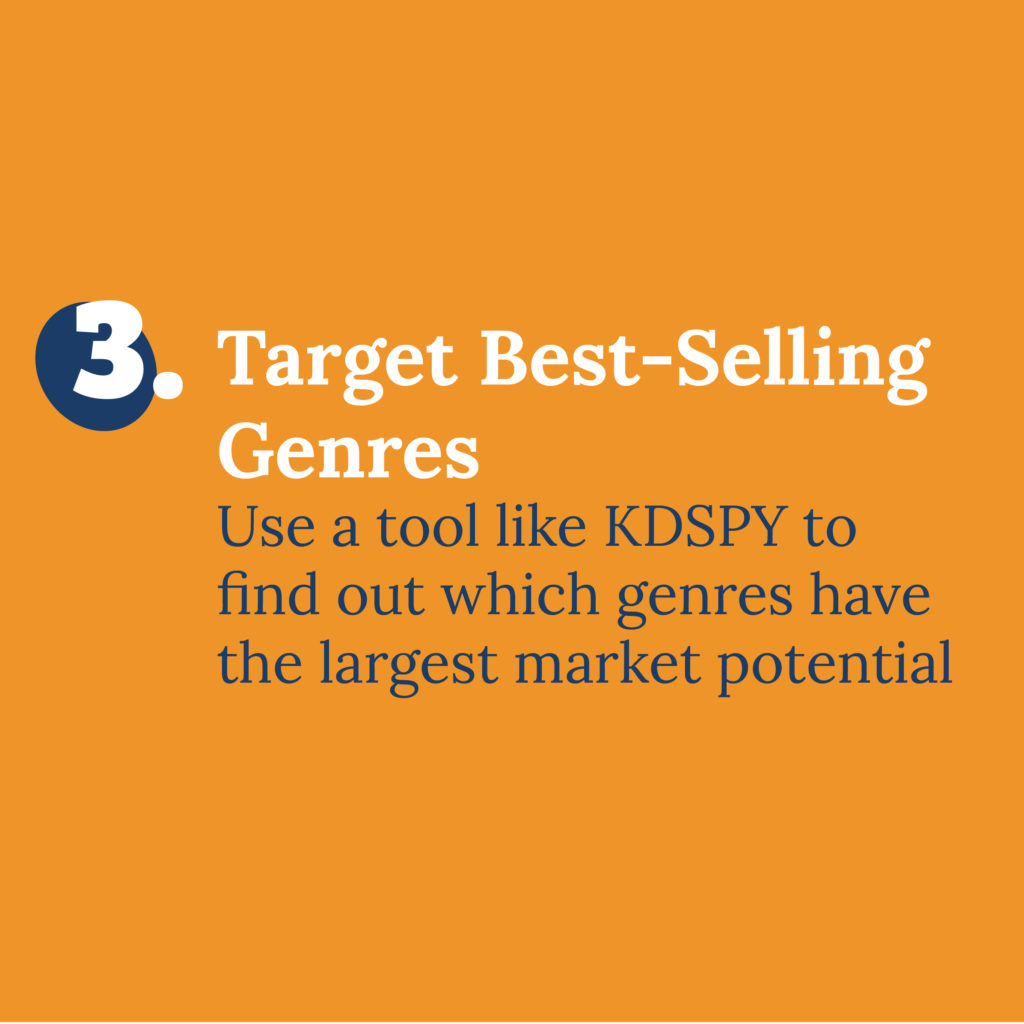
Maybe you love reading historical romance, but you’re also a fan of literary novels. Which should you write? If you’re focused on making money as an author, you’ll probably want to go with historical romance, as there’s a much larger market for that genre.
Even if you’re already writing in a popular genre, like romance or crime, you still need to carefully target a subgenre. This helps you figure out what categories to use on Amazon for your existing novels—and it can help you tailor what you write, as well.
Tip: Take a look at my KDSPY review to see how this tool can help with genre-targeting.
Improve the Quality of Your Book
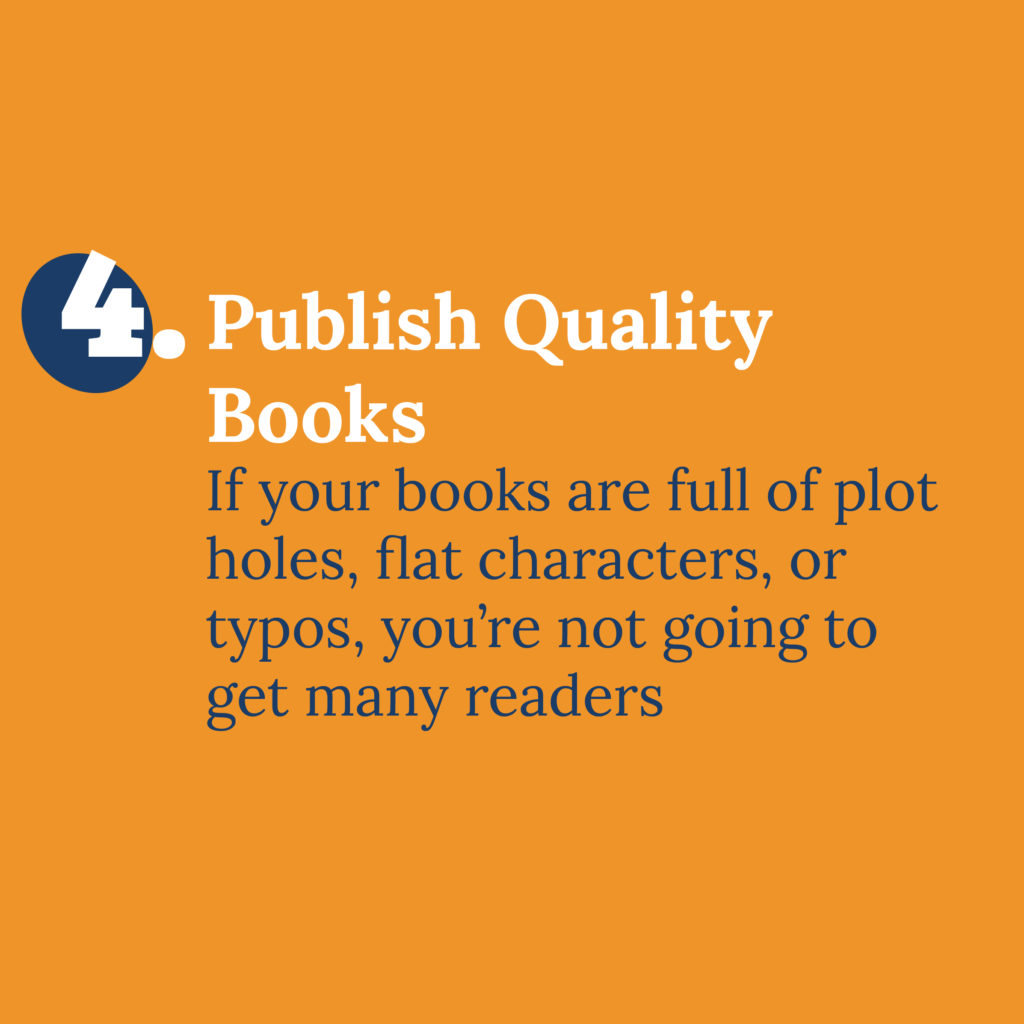
To make a living as an author, you need to publish quality books.
If your novels are full of plot holes, your characters are flat and uninteresting, or your books are riddled with typos, you’re not going to get many readers and your author brand is going to suffer.
Most authors find it takes a little while to truly find their writing voice.
Their fifth book might be significantly better-written than their first. You might want to go back to your earliest published books and re-edit them. Even simple tweaks, like changing the cover and blurb can make a huge difference to your book sales.
Tip: Book cover design doesn’t have to cost a fortune. Whether you want to take a DIY approach, use a custom designer, or buy a pre-made design, check out these proven tips for designing a book cover.
Why Should You Treat Your Books Like Part of a Writing Business

If you want to see financial success as an author, you need to treat your books as part of a writing business. For them to sell well, you need to market them.
Some authors cringe at the thought of marketing—they just want to write. If that’s you, look into marketing options that revolve around your writing.
Perhaps running book giveaways, writing guest posts, or even writing a book to give away on perma-free would suit you well.
Also, don’t get hung up on comparing what you’re making to what other authors make. Instead, look at how your book sales figures are improving and how your profit is growing, compared with 6 months or a year ago.
If you’re continuing to make more money—even if it’s not yet a full-time income—then you’re well on your way to success.
Whether your book is still at the first draft stage or almost ready to go, check out my tips for a great book launch.

